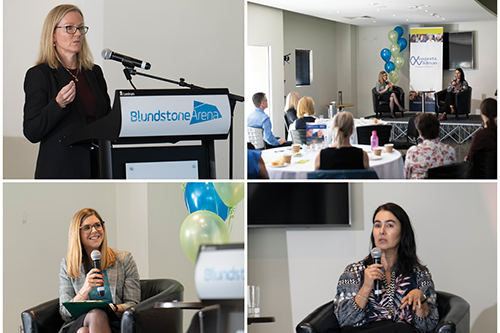
The Great Resignation - Is it real?

The Great Resignation is a label first coined in the United States to describe the way that people were reassessing their priorities and looking for purpose after the new experience of working from home and being faced with the challenges of the global pandemic. This reassessment often resulted in people leaving their current job for another one or choosing a completely different path. Although we may not be seeing the same trend in Australia, there are certainly indications that workplaces are facing pressure from their people to provide more in terms of flexibility, benefits and remuneration. This pressure is due to three main reasons:
- Burnout and Languishing. Burnout is characterised by chronic depletion, and energy depletion resulting in the inability to function. Languishing is characterised by “feeling less”. Less motivated, less productive, less engaged, less enjoyable overall. A general absence of wellbeing.
- What is referred to as mortality reality. When faced with a global health crisis we question what is important and why we do what we do. Most often we look for purpose and meaning.
- Flexibility and agency. A taste of greater control over the workday was achieved due to the work from home experience and consequently people want more flexibility.
Not all workplaces have the same challenges
Some industries are comprised of a mix of essential workers who have remained in their workplaces while other roles have moved to work from home or a hybrid of the two. Back in 2018, there was a buzz around “flexible work”. However, there was a fear amongst managers and leaders that productivity would decline, and people may take advantage. The worldwide pandemic put the theory to the test with overwhelmingly positive experiences. People were trusted to work from home and by and large rose to the task, exceeding expectations and maintaining productive working remotely. Of course, over time variations in productivity based on several factors may emerge.
Hybrid is now the buzzword
Almost 75% of people want to be in the workplace some of the time but most wanted a hybrid of work from home and work in the workplace.
Work from home benefits:
- More productive, more motivated, more likely to stay and little impact on inter-team relationships
- Autonomy to choose how and when they work, can live further from work, save time on commute and money on travel etc
- Trust leads to people working longer hours and taking fewer breaks than in an office environment.
- Gains in inclusion with fewer microaggressions related to in-person interactions.
Benefits of working from office:
- Motivation from changing environments and people providing stimulus.
- Collaboration and culture, important people skills and ability to work in the office together.
- Opportunities for learning and incidental interactions which can have high value/impact.
Intergenerational expectations around work
Research shows that there isn’t much difference. People tend to have four top priorities regardless of generation. Differences in approach are more about age and life stage than about generational differences. Here are the priorities in order of importance:
- Meaning and purpose
- Money to support chosen lifestyle
- Community
- Leisure time or wellbeing initiatives
Where to now?
Our customers are telling us that their people are wanting more discussion, they want to be heard and have their experiences validated and acknowledged. They do not want to be “preached” to or converted to someone else’s way of thinking. At Newport & Wildman, we bring the discussion to organisations and their people via onsites, debriefing sessions and professional supervision. Our clinicians and coaches integrate with and understand your work environment.
If you need some support, please reach out to us here at Newport & Wildman on 1800 650 204.


